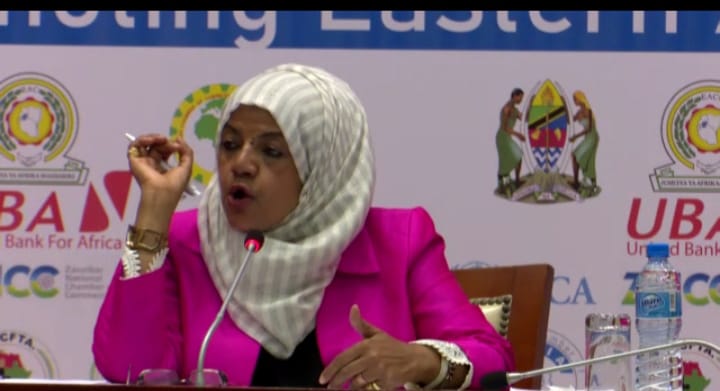The business space should not only be dominated by men, instead women should be empowered to competitively participate in the business sector.
Speaking today at the East Africa Trade and Industrialization Week 2021, the Kenya National Chamber of Commerce and Industry 2nd Vice President Ms. Fatma Elmaawy acknowledged that women economic empowerment is central to achieving women’s rights and gender equality.
If empowered, women are able to participate equally in existing markets, have access to and control over productive resources, have access to decent work and control over their own time.
The 2nd Vice President has called on governments to embrace women empowerment stating that when more women work, economies grow.
While highlighting that women empowerment responds to 6 Sustainable Development Goals ( achieving gender equality, promoting full and productive employment and decent work for all, ending poverty, attaining food security, ensuring good health, reducing inequalities), Ms. Fatma has emphasized the need for all nations to take deliberate efforts and focus on growing women. The efforts may include increasing women and girl’s education attainment to make them advance more in economic growth. This was reiterated on by Ambassador Nelson Ndirangu, Chairman of Competition Authority of Kenya, who has expressed the need for African Continental Free Trade Area (AfCFTA) to come up with policies that support women and build a conducive trading environment for women to work.
According to Ms. Fatma, “Women economic equality is good for businesses, it is estimated that companies with three or more women in senior management functions score higher in all dimensions of organizational performance”.
She has commended the Government of Kenya for the efforts and measure put in place to support and encourage women to venture in business. An example she gives is the requirement for all procuring entities in Kenya to allocate 30% of their procurement spend for the purposes of procuring goods, works and services to micro and small enterprises owned by youth, women and persons with disability.
However, Ms. Elmaawy has called on all women in trade to formalize their business by registering them, pay taxes and adhering to all guidelines required by the states they are operating in.
“Give to Caesar what belongs to Caesar” quotes Ms. Fatma in her advice to women to adhere to the right business procedures to avoid being in the wrong side of law.







Leave A Comment